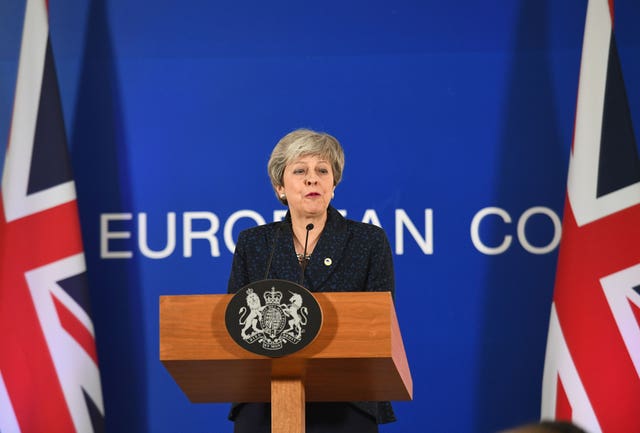Revoke Article 50 petition hits three million signatures
It has become the second most popular petition submitted to the Parliament website.

A petition calling on the Government to halt the Brexit process has passed three million signatures.
The Revoke Article 50 petition has become the second most popular submitted to the Parliament website with the highest rate of sign-ups on record, according to the official Petitions Committee.
Theresa May ruled out cancelling the countdown during her visit to Brussels on Thursday, telling reporters: “I do not believe that we should be revoking Article 50.”
The petition passed another proposal which sought to prevent Donald Trump from making a state visit to the UK, which had 1.9 million sign-ups.
A 2016 petition calling for a second EU referendum should the winning vote and turnout not reach a certain threshold has received the most signatories to date, at almost 4.2 million.
Data provided on the petition website shows a location for 1.3 million signatories to the latest proposal, of which 1.26 million claim to be from the UK, but the petitions committee said the figures were not updating automatically to aid website operation.
A spokeswoman said: “Data is temporarily not updating because we have disabled the automatic count updates to let the site run more smoothly.”

The official website has crashed numerous times since the petition leapt in popularity following the Prime Minister’s statement on Wednesday, with MPs and celebrities publicly backing the appeal.
In her Downing Street statement, Mrs May blamed MPs for failing to implement the result of the 2016 EU referendum and told frustrated voters: “I am on your side.”
The petition quickly passed the 100,000-signature threshold needed for it to be debated in Parliament, with the official committee revealing nearly 2,000 signatures were being completed every minute over Thursday lunchtime.
On Thursday, EU leaders said Brexit could be delayed from March 29 to May 22 – but only on the condition that MPs vote for Mrs May’s deal next week.
If it is rejected in the third “meaningful vote”, the UK would have until April 12 to tell the European Council a way forward.
An extension could continue for several more months if Britain agreed to vote in May’s European Parliament elections.





